About Us
Who we are
We’re a University built for the busy — and the ambitious. Here, dreamers can pursue their educational and career goals with confidence.
About us
Who we are
We’re a University built for the busy — and the ambitious. Here, dreamers can pursue their educational and career goals with confidence.
About University of Phoenix
Founded in 1976, University of Phoenix became one of the first online universities designed for working adults. We offer a powerful combination of career guidance, personal support and flexible learning opportunities — all with options to help save time and money on your degree. Here, the best time for class is when it fits your schedule, so you can balance it all — work, family and school — by focusing on just one 5-to-6-week course at a time.
We are accredited by the Higher Learning Commission (hlcommission.org), which validates the University and the quality of our academic programs.
Our students learn career-relevant skills from our faculty — leaders working in business, technology, healthcare, education and more — who bring a hands-on perspective and practical knowledge to the classroom. Because we know your life doesn’t stop when the sun goes down, we offer personal support and resources by phone, chat or email to encourage your success as a student and beyond. And with so many ways of staying connected to an inspired community of students just like you — who understand what it takes to keep going and can motivate you along the way — you’re never alone.
As a transfer-friendly University, we accept transfer credits from over 5,000+ schools; plus, we provide students with the opportunity to have relevant experiences — everything from life experience to past jobs — evaluated for potential credit to help our students get the college credits they deserve when going back to school.
Your 24/7 classroom is open.
Fast facts
80,000
total degree enrollment [1]

45+
years continuously accredited by the Higher Learning Commission

78.1%
are employed while in school

100+
programs aligned with 300+ careers

38
is the average age of new students

29+
years of our faculty’s professional experience, on average

[1] Statistic as seen in University of Phoenix 2023 Academic Annual Report

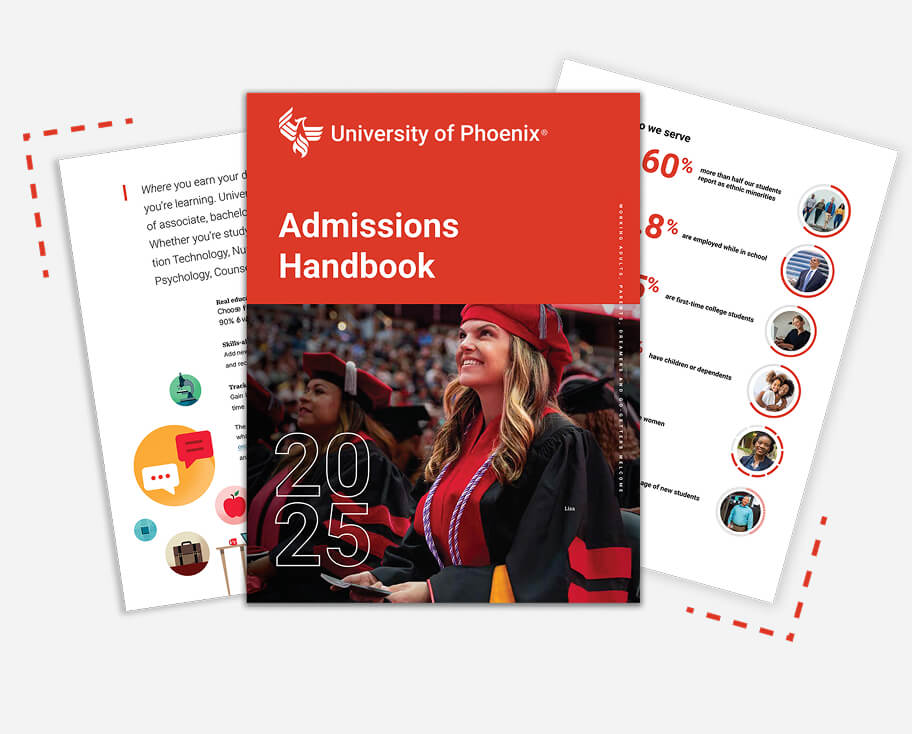
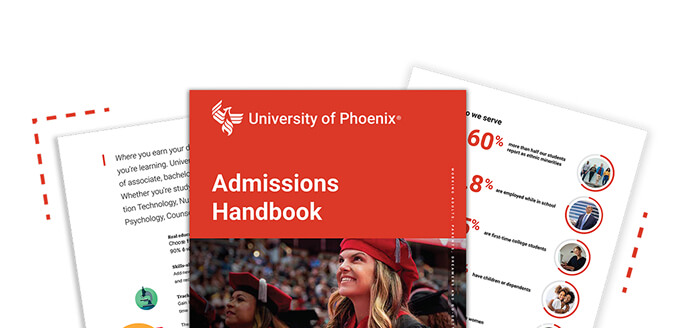
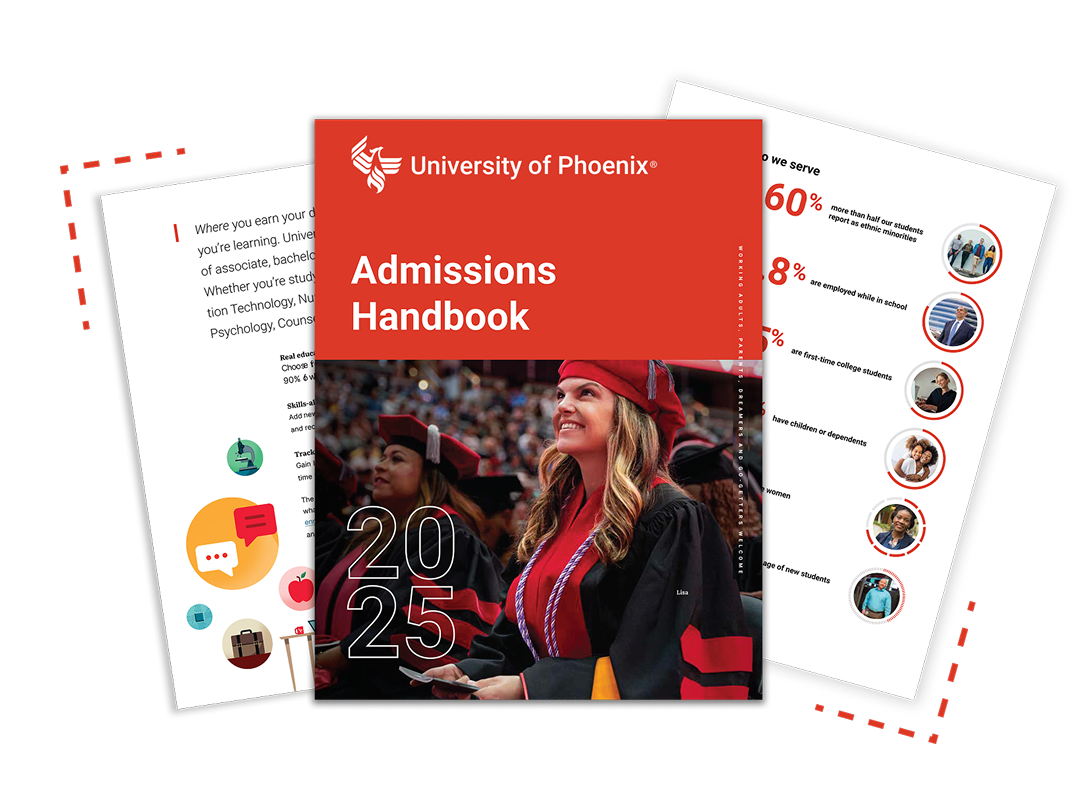
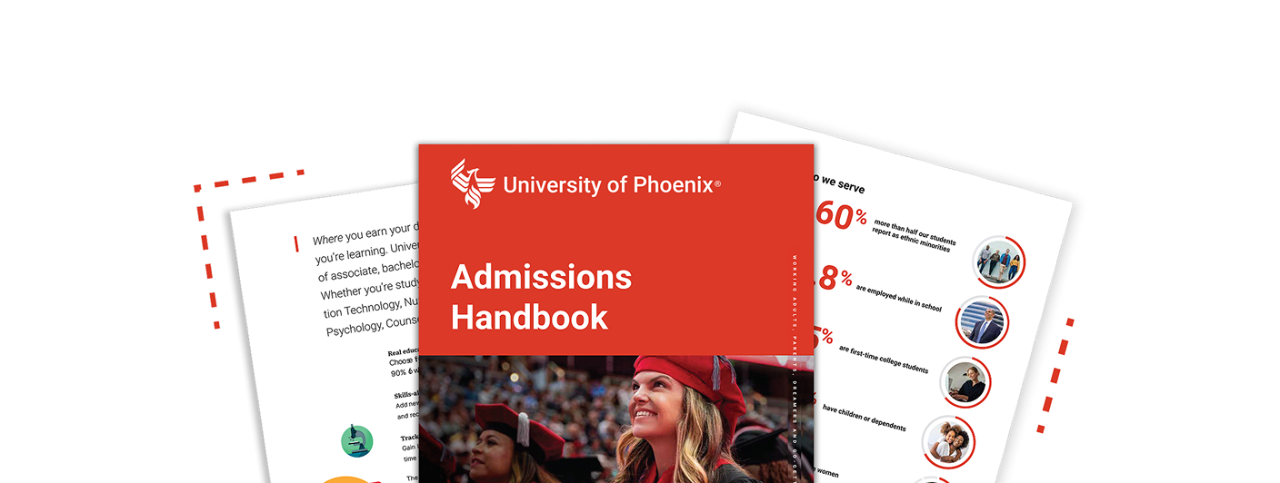


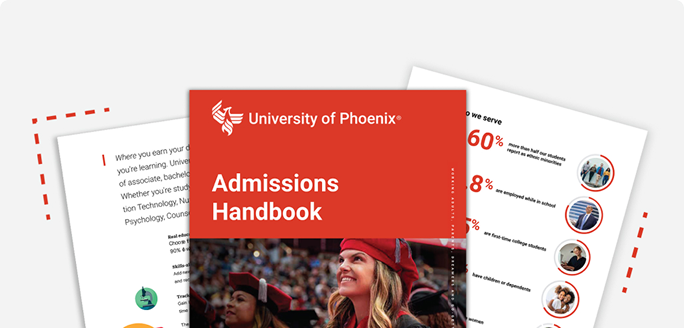
Get our Admissions Handbook
Learn about ways to save, program details, our admissions process, student support and more – in one handy place.
Thank you
Download your pdf guide now. Or access the link in our email.
Get our Admissions Handbook. Please enter your first and last name.

Did you know?
Every degree is backed by career support for life.

TrustScore: 4.3 out of 5
Great place to learn
UoP is truly a self-paced institution that also provides you with everything you need to succeed. It also provides a fantastic work/life balance while you attend to your classes.
- RYAN ROBBINS
The school cares about each student...
The school cares about each student individually and goes above and beyond to help you reach your goals.
- ANGELA JEFFERSON
Real Life Applications
I’m truly able to apply what I’m learning to my everyday life and professional life. My instructors are present and care about the students succeeding.
- KIMBERLY PRICE-GARCIA
Worth the Investment in Yourself
I was skeptical in the beginning when researching schools for my MBA, but I am so glad I went with UOP! I have enjoyed my time furthering my education with UOP. The professors are extremely knowledgeable and helpful, assignments are paced to allow you to be successful.
- Woolwine Tiffany
You're never too "old" to return...
This school was perfect for me! I have been enrolled for the past six years, completing my BS in Human Services, and am now nine weeks shy from completing my Masters in Psychology. And I just turned 60!
- ALLISON PARTRIDGE
- Great place to learn
- The school cares about each student...
- Real Life Applications
- Worth the Investment in Yourself
- You're never too "old" to return...
Contact us
Reach us by email, phone or mail if you have questions about admission, academics, financial options, joining the faculty or other University of Phoenix matters.
University of Phoenix
4035 South Riverpoint Parkway
Phoenix, AZ 85040

